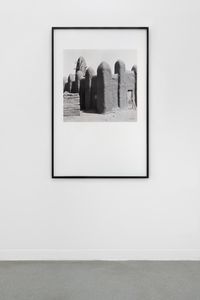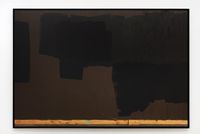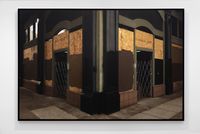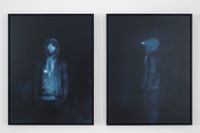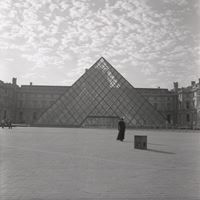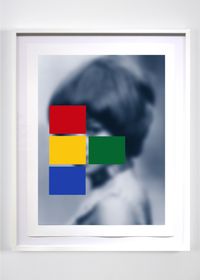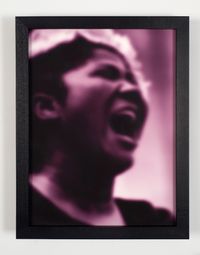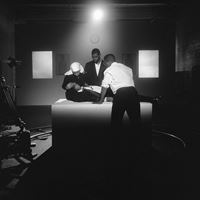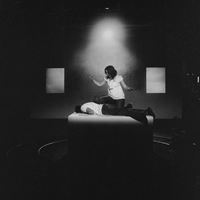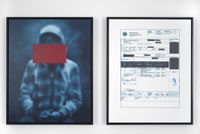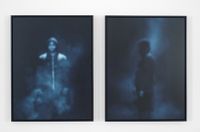Carrie Mae Weems' art explores personal and familial themes, while also reflecting the broader Black experience and Black history. Text, audio, and spoken word often punctuate the confronting themes of her work.
Read MoreWeems' 'Family Pictures and Stories' (1981–1982) was her first major series. The documentary-style series, drawing on photographs taken during the late 1970s, features candid and intimate images of friends, relatives, and neighbours inspired by writer Zora Neale Hurston and photographer Roy DeCarava.
Reflecting her performative roots, Weems soon turned to featuring herself in her photographs, adopting different personas as a means to examine social norms. In Portrait of a Woman Who Has Fallen From Grace (1987), Weems challenges imposed societal standards of 'grace' as she provocatively sprawls out on a bed, dressed in white, cigarette in hand.
In many of her seminal photographic works, Weems employs text, often written in startling vernacular. In Mirror, Mirror (1987), from the series 'Ain't Jokin'' (1987–1988), a woman asks a mirror, 'Who's the finest of them all?' only to be told, 'Snow White, you black bitch, and don't you forget it!!!' Such text accentuates a critical examination of inherited social narratives around race and ideals of 'femininity'.
Weems is best known for 'The Kitchen Table Series' (1990): simple black-and-white photos of a young Black woman at home—alone, with friends, a romantic partner, her daughter. In the images, the artist plays a woman described in the work as having a 'bodacious manner, varied talents, hard laughter, [and] multiple opinions.'
From the late 1990s, Weems began to embrace video technology in her work. Her first major feature-length work, Coming Up for Air (2003–2004), presents a series of vignettes depicting archival footage, squabbling sisters, schoolchildren, and relationships between Black men and white women in pre-civil war New Orleans.
Her 2017 short films People of a Darker Hue and Imagine If This Were You approach the circumstances and realities of police brutality against African Americans.
